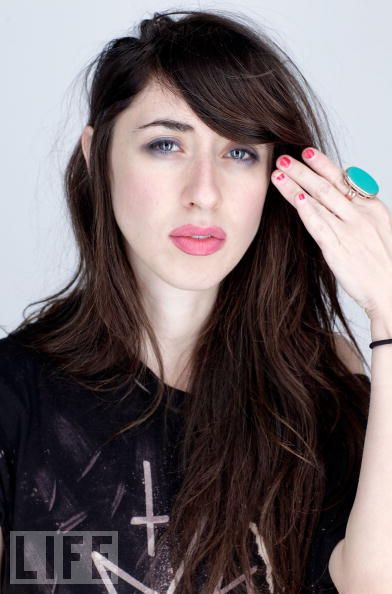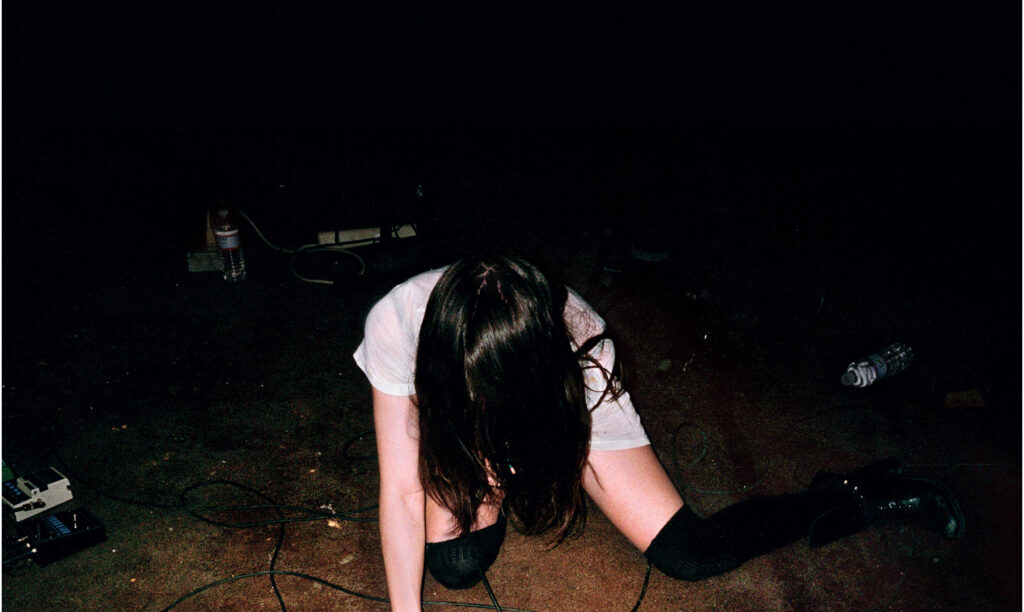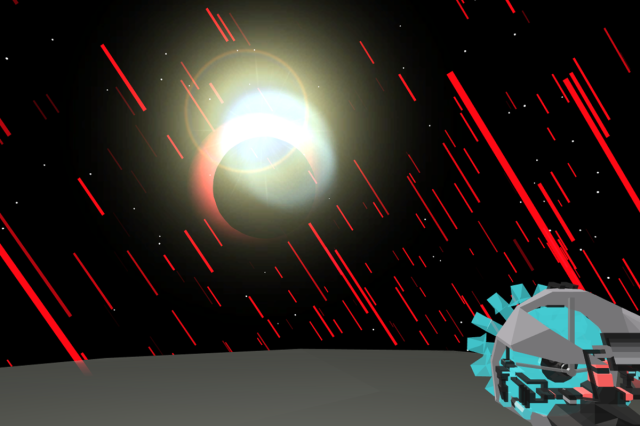ABOUT YASMIN KITTLES: For over 10 years, Jason Kernevich and Dustin Summers have been working together as The Heads of State. They’ve created award-winning posters, book covers, branding.
I got the chance to sit down with Yasmine Kittles, half of the two-person juggernaut known as Tearist. They are an impressive and cataclysmic duo that has seen some major growth in its reception lately. To call it a meteoric rise would be a misconception, they have been doing their thing since 2009. Though, through hard work, pathos and genuine earnestness in the production of their art and music; they have spread the word of Tearist. People around the world, literally, are starting to take major notice. All of this has coincided with a recent cover feature by the Los Angeles periodical, LA Weekly. The profile titled, Tearist: The Real Thing by Liz Ohanesian has only added to their momentum. Over coffee and chai tea at a non-descript café in Larchmont Village (my old stomping grounds), we managed to block out yelping toddlers, barking lapdogs and an acoustic cover of Outkast’s Hey Ya by Matt Weddle leaking from the outdoor patio speakers. Well, I managed to block most of it out anyway. Kittles, who exudes a worldly New York City vibe combined with an easy So-Cal cucumber coolness, is also, at the same instance, über-alert of her surroundings and maintains a kind of hyper-vigilance of her environment. We chewed the fat for almost two hours; talking about art and surrealism, the death of music, anger, love, vulnerability, process, and being humbled by global notoriety . The talk extended to the topic of feminism and picking your battles as a modern “feminist”. We also launched into the discussion of the uncomfortable and regressive milieu of overt, latent sexism that still manifests itself in the blogosphere in 2011. I appreciated her frank honesty; at the end of the day, Kittles strikes me as a sensitive and passionate artist who is knowledgeable about her craft. This is the conversation that transpired:
PART 1
TONY TRINH: Let’s talk about this layer of Artaud’s Theater of Cruelty, where you’re asked to, as an artist, really strike a chord with the spectator. After all, that’s the whole point of being an artist, you have to be deliberate and not be benign.
YASMINE KITTLES: I mean, a lot of people would argue (against) that, because they seek to fit a formula in order to be accepted and I think that’s the problem with a lot of music now, is that people aren’t trying. You know, you hear something and (sarcastically), “This sounds like this. Oh, that’s great!”
TT: It becomes derivative. This derivative and referential music becomes dead, right? Is that what you’re saying? But back to this idea of the Theater of Cruelty, you have to incorporate this sense of shock and shocking the spectators to wake them up. Then also, you’re kind of working in Dadaism, this kind of surreal nature, where you’re making a subversive commentary on music and the process of being entertained.
YK: Right, yeah, exactly!
TT: With that said, this is a conscious decision, right?
YK: It’s not conscious in the sense of, “This is what I’m trying to do!” I mean, this is something that I’m consciously aware of and didn’t like, but it’s become so much of what I’m about as a person, that it’s just the way I had to do things.
TT: To express yourself…
YK: It is who I am and having ever known that it was even possible to get to that point. You know, this idea of why are we so comfortable? It’s not necessarily about shocking, but it’s more about…
TT: Waking people up. Stimulating people.
YK: It’s interesting that you say it’s a commentary on the state of music right now because I really never thought about it that way, but it is, you know.
TT: I think the core of what I’m getting at is that there is this dichotomy between…the art is art and it’s subjective, you make the art, you put it out there…but what I find interesting with Tearist and your work with William (Strangeland-Menchaca, half of the duo)…your interests, Artaud, Dadaism. The Dadaism is almost bordering on Nihilist. It’s iconoclastic. You’re not necessarily thumbing your nose at convention, but at least, questioning it.

YK: That’s exactly it. Why is this okay with you? Why are you okay with going to a show and talking through it? Because it’s comfortable. Why are you so comfortable? Why is there someone on stage giving you possibly everything, their insides, and you’re so comfortable sitting back and having it (be) in the background? Because it’s not challenging you. It’s not challenging you to think. It’s not challenging you to feel. It’s not challenging who you are as a person, what you’re doing with yourself. I always say it’s about making the comfortable uncomfortable and questioning why they’re uncomfortable. Why?! Why is my performing this way making you uncomfortable? It’s either somebody hates it or loves it, but there is nothing in the middle. I never want somebody to be in the middle.
TT: And that’s the state of observing art, right? You have this one layer of subversion, undermining this convention of music and performance, but you’re also building this connection with people.
YK: It’s not even so much about…because I zone out a lot and that comes from when I realized that I could…which was when I was studying performance and I was doing these pieces based in the Theater of Cruelty and I never knew it was possible to get to this level that you were so physically zoned out.
TT: In a trance?
YK: Exactly! Once I committed to it and let it become what it was, it was so much more intense. I was in control but I wasn’t. I was letting all these things that were “ugly” come out of me and I wasn’t aware of my face. This was actually me, this kind of animalistic, immediate response to whatever it was; my surroundings, anything that touches my body. I’m aware of it.
TT: Is it cathartic? Doing that performance and having that emotional and physical release, but isn’t it also very draining? How do you psyche yourself…
YK: It’s terrible.
TT: It’s painful?
YK: You know, it’s not like I’m out there trying to cry or be really angry.
TT: Being dramatic for drama’s sake.
YK: If I’m not feeling something, you’ll know. There’s a stillness, nothing is pre-planned at all. Sometimes I’ll remember a song in the way they were written, they were about certain things…it’s the only place where I’m fully vulnerable, is on stage or through these songs. And a lot of times, people don’t even know what I’m saying. But each thing, each song is so specific to me…
(dog starts barking)
YK: Sometimes I can remember what it was originally or where it is now and I’ll see something out of the corner of my eye, all of a sudden, and it becomes so…
TT: Hypnotic?
YK: Whatever that emotion is, it becomes more intense. It’s like I have to face this thing. If I see someone talking (during a performance), I am so hurt, because it doesn’t happen a lot. A lot of times, people are dancing, but there aren’t a lot of times when people are just talking. Which I think is such a victory. But when those things happen, it hits me so much more intensely, because, literally, this is how I feel, this is how I look. I’m not focused on what my face is like. So I’m giving you everything and when I come off stage it’s fully draining because I don’t want to face these things. I’m so vulnerable, I’m so open. You can hurt me with anything. And there was this one show we played in the UK and it was packed and we had just played a song that was really intense for me…so insane, and the only time I’ve ever seen this was in Japan, when people would clap and wait so respectfully…clapping and then waiting. It’s insane. But that has happened at our shows, people clapping and then you don’t hear anything. And it will be packed. So in the UK, I heard people talking by the bar and I was so angry and I was like, “So what are we talking about?!”
TT: (I laugh) Really?! You just called them out?
YK: Somebody wrote about it. I was like, “So what’s goin’ on? Should I juggle? What should I do? Should I come to you? Do you want the microphone?” And then they were quiet.
TT: (I laugh) So is the club the wrong type of venue for you guys?
YK: No! No.
TT: You know, you attend a play, you don’t talk. Cell phones off. This is a performance (play) also, sonically based, but…
YK: We’ve played in galleries, theaters, and an actual theater for plays. It’s always a challenge but it’s interesting. I think what I really like is the challenge we can affect people in that environment. It’s so huge. I’m tired of going to a show and being able to have a full conversation. If someone is on stage I want to be able to not go to the bathroom because I want to see what’s going to happen next.
TT: Be captivated and engrossed.


YK: Right. Make me feel something. Or don’t…make me feel annoyed or angry. I want to feel something when I had left. I want to leave…the most special moments have been (after seeing a performance) when I had to go write something or make something now. What am I doing at a bar? So it’s, like, I didn’t expect that, but we’ve gotten compliments like that. And that happened after the first show, and at that moment, I was like, this is it, like, that was all I wanted, was to affect. To cause an effect on someone because all we are, are reactions.
TT: So what is your reaction to all of this? I mean, you guys have been doing this since 2009 and I’m seeing this exponential growth in the reception of Tearist. What’s it been like for you and William (Strangeland-Menchaca) with this devout following? It’s like the Church of Tearist. We see you up there and it’s iconoclastic, agnostic, and apolitical yet there’s this cultish, religious following. You’re up there, writhing around in a trance like some shaman priestess and it’s really intriguing how there’s this devout fanbase now. It’s global too.
YK: No, it is.
TT: Is it overwhelming?
YK: It’s beyond overwhelming. When the LA Weekly cover came out, I didn’t even want to leave the house because I was so afraid, I guess. I didn’t understand. Now we’re open to be…instead of being this little secret, we’re open to weird criticism and I didn’t know how to take how the comments were. In a positive way, like LA Weekly saying how important we were. How can I live up to this thing? There was so much and being in Europe and having the people know words to your songs and they’re not even recorded yet and they’re just on YouTube? I’ve been on the verge…it’s made me cry. This was a new song. You know this song? It’s hard to even talk about. I didn’t even expect it.
(Strong Enough by Sheryl Crow comes on in the background of the café patio)
YK: I used to ice skate to this song. I was a figure skater.
SAM IRAVANI: Really?!
YK: Yeah.
TT: I used to smoke pot to this song.
SI: (to me) You did? That’s kind of depressing.
TT: It’s slightly surprising because you are so confident in the way you move and perform, but you seem like a humble person at the same time. But you have to be quasi-egocentric and confident when you are performing. But this reaction is still humbling to you?
YK: When people come up to you afterwards and are saying these amazing, huge things and I am so vulnerable because this is everything I am and you’re talking about it in a way that’s so beautiful…
TT: You don’t know how to respond?
YK: Right, because it’s too much. It’s too amazing. Something like this…I’m very outgoing; I’m the loudest person, if I like something I will tell you immediately. I’m not afraid to confront people about anything and then this happened. And I would’ve thought I would’ve been, “Yeah, did you see me on the cover?!” But I just couldn’t believe it and I never expected it…because it…it (performing) was only for us. It wasn’t done to get anywhere. Obviously, we do want it to get everywhere but it wasn’t done to…we didn’t go, “So here’s our plan and here’s how we’re going to get big and we’re going to go do this, and this, and this.” Actually, we talked about it so much when we first started, “God, everybody is going to fucking hate this. This sucks. What does this even sound like? I like it, you like it. But what does it sound like? I can’t even compare it. Our friends aren’t even going to come to our shows.” And I was afraid of the sound and then once that happened and we realized it, we were free. We’re not trying to appease anybody and it gave us this whole freedom to do what we wanted because, “They’re going to fucking hate it. That’s awesome! So let’s just go for it.”
TT: So just embrace that fear?
YK: So anything that I’m afraid of, I have to do. If I’m afraid of something I have to (do it).
TT: That’s all about growth, right? Doing things that you fear.
YK: You know, like a performance piece, with a hero or something or something that is too emotional and I don’t want to go there. Okay, I have to (do it). I’m like, “Fuck! I really have to (do this) now.” There’s no out.
TT: Talk about how your performances work. It’s an act or performance that needs an intimate setting, so does it translate all the time? I was thinking the other day, you guys are kind of blowing up, the fanbase is growing, the exposure. “I could see these guys under the Sahara Tent at Coachella one day,” or something like that. Talk about how the performance translates on a larger scale. Does it still work? Does it need that intimate setting? You guys opened for La Roux at El Rey, right, how did that go?
YK: It was awesome, it was amazing. That was kind of early on too. I think we had only been together for a short while.
TT: So does it work in a larger setting? When you can’t hear the ice cubes clinking in a cocktail glass and you can’t hear someone talking and single them out in a crowd of 5,000 people.
YK: In that sense, it would just be a lost cause to try to do that.
TT: Do you amplify the act?
YK: (laughs) I feel like it’s already pretty amplified! It’s a bigger stage so I’ll use more of the stage. I come from theater so you have to fill the room.
TT: Project.
YK: And that is in me to fill that room whether how small or big. It’s the same thing. Sometimes when it’s smaller it’s more intense because people are closer and seeing you…because we’ve played at places that have been fully packed and I could not move myself. And that was hard for me not being able to move. But having a large space I could really use the stage and move from one end to another. We played a huge venue in France, in Paris, but it was humongous and amazing. I can still see the movement of the people. Some people would try to catch my eye. Really trying to make eye contact with me. Yeah! Very specifically. I don’t know if they were as entranced as well. I remember specific moments where people were following me with their eyes, trying to make this eye contact. And then I would and I would stay on them. I can’t even describe what that feels like. That’s scary, when I snap out of that zone and all of a sudden I’ve made eye contact with someone and we’re not losing eye contact. And I’m like, “When does this actually happen?!” (stops herself) Actually, not true. I’m not comparing myself to my heroes or whatever, but when I saw Genesis P-Orridge with Throbbing Gristle, a legendary industrial band. They reunited and played at Coachella and this is like, my hero. Genesis gave himself to art basically and changed to a woman. It was around the time of Einstürzende Neubauten, they (Throbbing Gristle) were one of the first industrial bands making crazy noises and people were like, “What is this?” That band, Throbbing Gristle, they had started doing these performance pieces together and then they started this band and…my hero, he had a sex change and is still attracted to women. He said he’s giving his body to art and changed it. He’s very eccentric, beyond anything. But at the show at Coachella, I tried to make eye contact and he looked at me and I was like (looks around), “Was he looking at me?” But we were locked and I literally felt it. I can’t lose this eye contact and it was this strange thing and when I was on stage and did that to someone else, not on purpose, this is the first time I remembered that, but on stage I felt so uncomfortable, so strange.



TT: You felt distracted?
YK: No, like something strange had happened. Now that you’re actually looking into my eyes, I can’t look away. You have more with what is going on with me. Like, not to be cheesy, but it is so intimate. You’ve just entered into this intimacy with me by making eye contact with me. I’m on a huge stage…
TT: With many people around.
YK: Right! And I’ve made eye contact with this one person. And I’m going to lock in on you until you can’t. But not on purpose, it’s this thing where I’m uncomfortable and so why (is that)? I love that, it’s insane. That’s crazy. Each time it’s always a challenge of why do I feel afraid of this audience or this stage? I was horribly terrified before we went on that (Paris) stage. I was going to vomit. It was so beautiful and so many people that were specifically there for us and had said that. And it was in France and I was just wearing a t-shirt and a hat and my friends in Glasser, they had played the night before, and she (Cameron Mesirow) had worn this beautiful ballet outfit looking very polished, and members of Fever Ray, they’re very polished and they were wearing the same clothes and I get on there and I’m wearing a dirty shirt and hat. And I called my mom so scared that day, “Mom, my friend wore this beautiful ballet outfit and the stage looks like it’s out of a movie. I’ll be on this beautiful music box of a stage. It’s gorgeous. I have to look flashy or have this performance look.” And my mom is like, “No.” And it was so strange for her to be saying that to me because…
TT: Good advice. Stay in your lane, basically, don’t change your game.
YK: I would think that she would say wear a beautiful dress or something. You look so much prettier in dresses, etc. But she knows because she has talked to me and knows how I feel about this and she was like, “You have to do the opposite of what you think you are supposed to do.” And that’s exactly how I feel.
(We are momentarily distracted as Jewel plays on the patio speakers)
YK: I think I actually cried when she said that because I was like, “You understand.” Coming from…she’s Muslim, I’m showing skin but not purposely. Before, I would wear a lot of leotards and things like that and I was like, you know what, I’m sweating a lot and these tights and leotards are too much and I can’t breathe.

